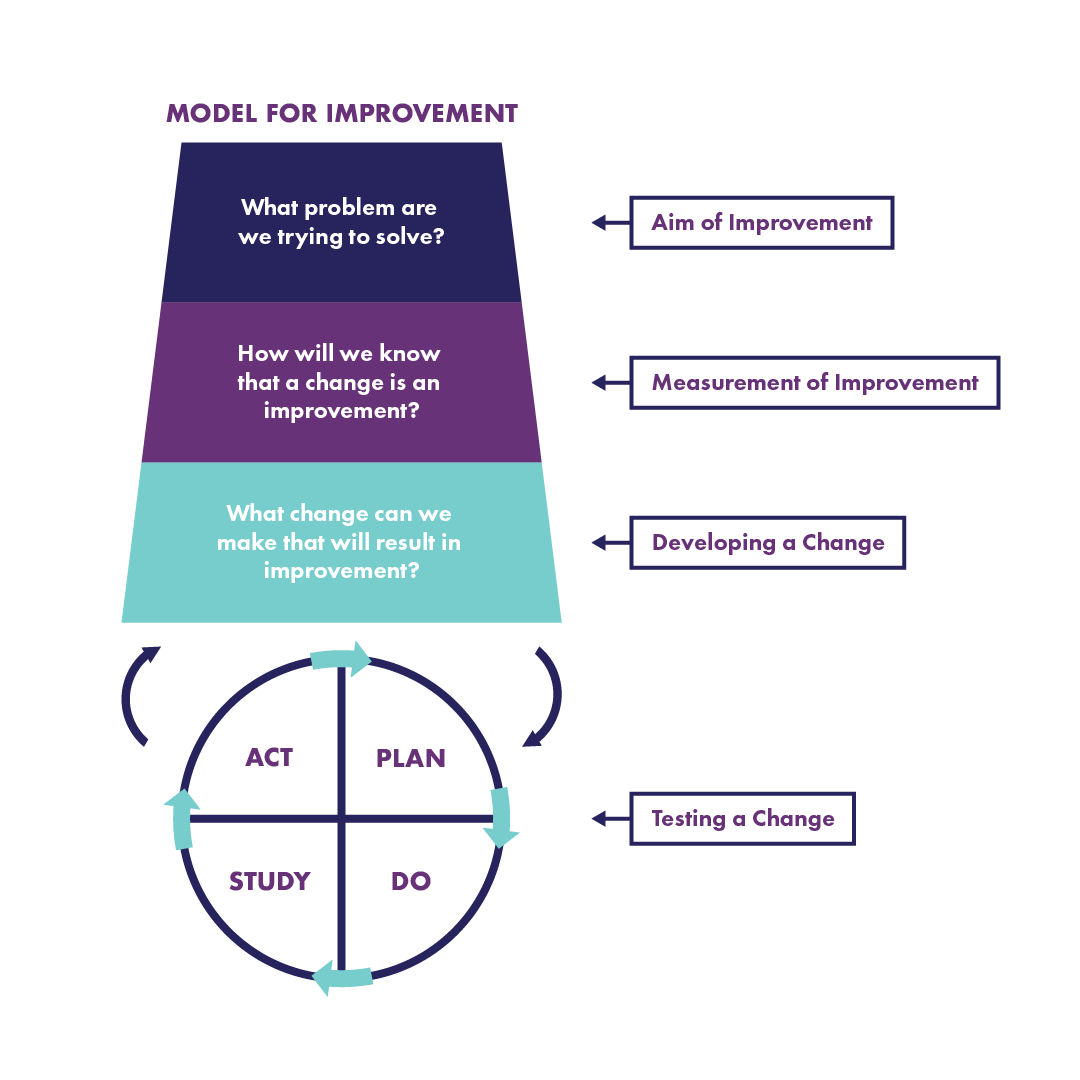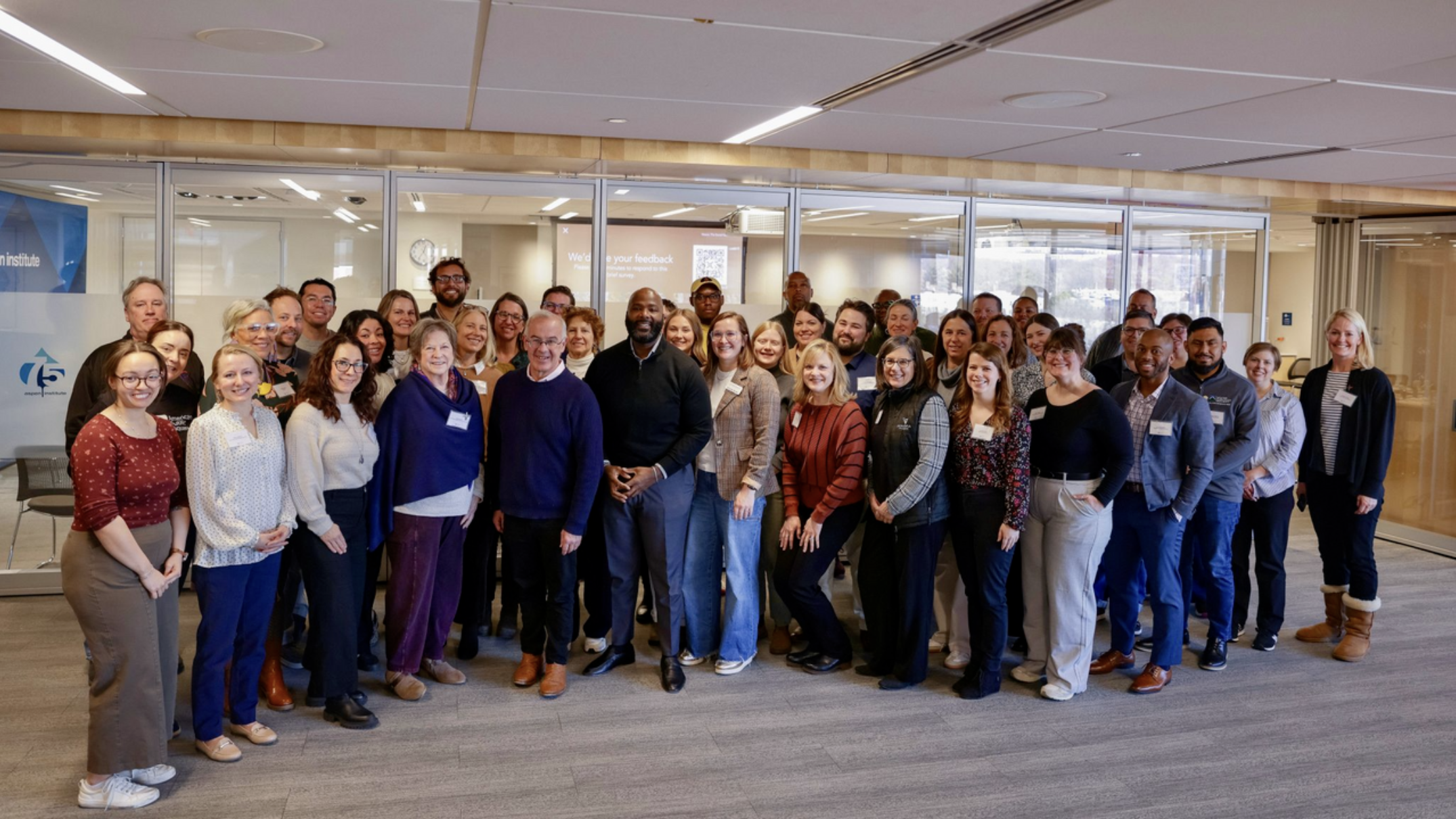
John T. Wardlaw
CENTER FOR IMPROVEMENT SCIENCE
What is Improvement Science?
Improvement Science in education is a structured, disciplined approach to continuous improvement, using methods to test and refine changes within an educational system. Continuous Improvement is a broad term for ongoing efforts to improve while improvement science provides a more defined framework with specific methodologies and tools for achieving lasting change. The goal is to make long-term gains in student achievement.
The Wardlaw Center is the training and coaching hub for continuous improvement work at Spartanburg Academic Movement. Wardlaw aims to drive sustainable improvements that foster a culture of continuous improvement programs throughout Spartanburg County schools and partners focused on accelerating academic excellence for all students.
Our approach in supporting this work includes delivering comprehensive training programs on improvement science tools and methods for educators and education leaders, collaborating on improvement projects via coaching and to facilitate team problem-solving rooted in the core principles of continuous improvement.
If you have any questions about specific trainings, please email Robin Carter.
What is the Wardlaw Center?
Continuous Improvement Training
The Wardlaw Center for Improvement Science offers training workshops free to all Spartanburg County educators and education adjacent partner organizations. Training courses are offered regularly at Spartanburg Academic Movement offices with available upcoming training dates and registration links posted below each course type. Individuals are encouraged to register using the links provided. Group trainings may be scheduled using the button provided.
CI 101
Principles of Continuous Improvement
CI 102
Tools & Methodologies for Teams
-
This course guides educator-practitioners through a collaborative problem-solving approach using the Carnegie Foundation for the Advancement of Teaching’s 6 Core Principles of Improvement. The 5-hour training includes an exploration of mindsets and qualities of CI and uses case studies on early grades reading and chronic absenteeism to illustrate the process of identifying problems and developing theories of improvement.
-
6–30 people
-
5 credits
-
None
-
Feb. 19
Click here to register.
March 19
Click here to register.
April 16
Click here to register.
-
Participants will apply the methodological framework and CI tools introduced in CI 101 to a problem of practice in their own contexts. This workshop will guide teams through problem identification, root cause analysis, crafting an aim and theory of improvement statements. Teams will also brainstorm change ideas that can be tested with a PDSA cycle. This class is 7 hours and intended for everyone who will lead improvement efforts as well as teams including teachers, instructional support coaches, administrators, and district staff.
-
6–20 people, 3–5 teams
-
7 credits
-
CI 101
-
March 6
Click here to register.
April 30
Click here to register
CI 103
Practical Measurement
-
Participants will link practical measures to a testing cycle to address if a change is leading to an improvement. We will ask “what’s working and how do we know?”. Testing and measurement plans will be developed and data interpretation methods will be explored.
-
6–15 people
-
4 credits
-
CI 101 & CI 102 or prior experience with CI coaching
-
Anticipated in June 2026.




